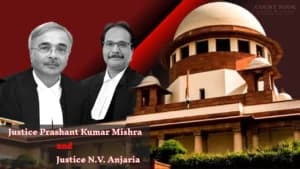In a significant ruling, the Supreme Court of India clarified the scope of Section 319 of the Code of Criminal Procedure (CrPC). The court held that a summoning application under this section, if initially rejected and later reconsidered due to a High Court’s revision order, remains valid even if heard post-trial. The ruling underscores the principle of "relation back," ensuring the effectiveness of judicial review in criminal proceedings.The Supreme Court bench, comprising Justice JB Pardiwala and Justice Manoj Misra, addressed whether a trial court could consider a Section 319 CrPC application after the trial’s conclusion if the High Court, in revision, had ordered reconsideration. The bench ruled affirmatively, stating:
"If the High Court passes an order in exercise of its revisional jurisdiction either setting aside or modifying the order of the Trial Court under Section 319, the same would relate back to the original order passed by the Trial Court and substitute it to the extent of modification."
This establishes that a trial court’s reconsideration, as directed by a higher court, is valid even if the trial has concluded.
Case Background
The case stemmed from an FIR filed on April 14, 2009, against five individuals under Sections 147, 148, 149, and 302 of the Indian Penal Code (IPC) in connection with a murder. Initially, a charge sheet was filed against only two accused, while investigations continued against others. The trial court framed charges on October 27, 2009, leading to the conviction of Irshad and Irfan in 2011.
In 2010, an application under Section 319 CrPC to summon additional accused was rejected. However, in 2021, the High Court directed a reconsideration of the summoning application. Subsequently, in 2024, the trial court summoned the additional accused, leading to the present appeal.
The Supreme Court examined two key issues:
- Whether the High Court was justified in overturning the trial court’s rejection of the Section 319 CrPC application.
- Whether the trial court could consider a Section 319 application after the trial’s conclusion, especially in the absence of a stay order from the High Court.
The Supreme Court emphasized the legislative intent behind Section 319 CrPC—to ensure that no guilty party escapes trial. The Court laid out three essential criteria for invoking Section 319:
"(a) There must be an ongoing inquiry or trial concerning the original accused. (b) Evidence must have emerged during the proceedings indicating that an individual, not originally accused, has committed an offense. (c) The person sought to be summoned must be triable alongside the original accused."
The bench ruled that since the proposed accused were named in the FIR but not included in the final report, the High Court was justified in directing the trial court to reconsider the summoning application.
Read Also:- Supreme Court Urges Centre to Address IFS Officers' Concerns Over IAS Appraisals
The Court elaborated on the principle of "relation back," stating:
"By virtue of relating back of the order passed by the High Court in a revision petition, the summoning order passed by the Trial Court in compliance with the order of the High Court would also relate back to the initial order rejecting the application under Section 319."
This means that a summoning order issued in compliance with a High Court’s directive is deemed to have been passed when the trial court initially rejected the application, ensuring judicial continuity and upholding justice.
Addressing the concern of a concluded trial, the Court clarified:
"Unlike cases where an application under Section 319 is being decided in the first instance by the Trial Court, the conclusion of trial will have no bearing on the adjudication of an application under Section 319 in terms of the High Court’s revisional jurisdiction."
This underscores that if a revisional court orders reconsideration of a summoning application, the trial court retains jurisdiction to act accordingly, even post-trial.
This ruling ensures that procedural limitations do not hinder justice. The judgment reinforces the principle that courts must have the flexibility to summon additional accused when new evidence emerges, even if the trial has concluded.
Additionally, the judgment aligns with the Supreme Court’s earlier rulings, such as Hardeep Singh v. State of Punjab, where it was held that Section 319 should be exercised sparingly but effectively to prevent miscarriage of justice.
Case Title: JAMIN & ANR. VERSUS STATE OF UTTAR PRADESH & ANR.















